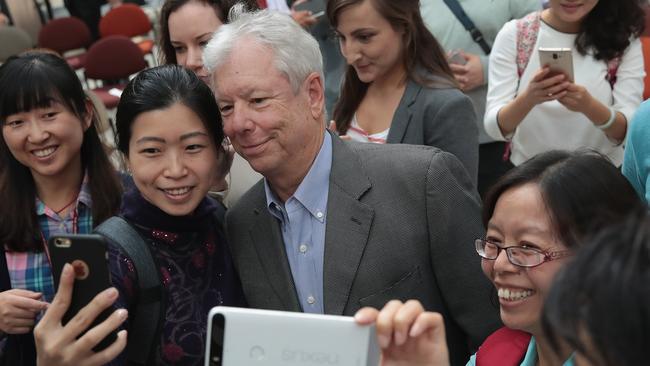Let’s clean up the sludge of our complex lives

The tweeter in question? Donald Trump.
It’s not the first time the US president has bemoaned technology. He is reported to be suspicious about self-driving cars. At a rally last month he veered into an anecdote about hi-tech drug detection machines: “So I asked the people that sell the machinery . . . ‘How does it compare to a German shepherd?’ The guy looks at me and goes: ‘Sir, honestly, it’s not as good.’ Can you believe it!”
On the one hand it is easy to dismiss this with a nod to history. The Luddites of the early 19th century smashed up looms that were automating the textiles industry but did little to hold back progress. Contrary to their prophecies, jobs didn’t disappear and the world actually became richer and happier.

Aren’t Mr Trump’s views simply another pointless scream in the face of progress? Well, maybe. But on the other hand they raise a few deeper questions too.
The first is about a new collision between technology and the human mindset. It’s one thing to smash up a loom because you’re worried it will take your job. But what about machines that have the power of life and death over you? Most passengers in taxis and planes prefer human drivers to robots, even when the evidence suggests that automation reduces the chance of an accident.
We may eventually get over this irrational niggle but it could take longer than in previous technological revolutions.
There’s something else going on here too. Consider the nature of 21st-century globalisation. Whereas most industrial revolutions were defined by technological leaps, this one was also predicated on something else: a quantum leap in the complexity of the global economy.
Where once a firm made a product in one country and shipped it to another, most global businesses have morphed into giant administrative hubs which manage intricate supply chains traversing countries and companies. When companies began to outsource work to far-flung parts of the world everything changed and the connection between consumer, company and workers was severed.
Apple might look like the world’s biggest manufacturer but it doesn’t make a single phone.
Many of the world’s leading car companies no longer make some of their own car models. Most consumers couldn’t care less, especially since this efficiency and complexity has helped to push down prices, but from the average worker’s perspective everything has changed. Work is more precarious than ever before and globalisation is partly to blame.
Consumers’ lives have also been ensnared in complexity. It’s impossible to use a smartphone or social network without signing up to terms and conditions you will never have the time to read, still less to understand. Has any generation been party to so many legal agreements? Student loans lock thousands of young people into complex lifelong contracts before they even enter the workforce. Taxes have become more complicated and ever more vulnerable to avoidance by those with the best accountants, which is to say the rich. Simple welfare payouts have been replaced by tax credits which involve byzantine application procedures and open the door to fraud.
Much of this complexity is designed to exclude. Complexity is being used as a tool to obscure your rights and prevent you from claiming your dues. Richard Thaler, the Nobel prizewinning economist, famously coined the term “nudge": the calculated interventions that governments and businesses can make to push consumers into behaviour they might otherwise neglect, such as auto-enrolling themselves into workplace pensions. He also has a word for this more malign type of complex intervention, designed to prevent people following through with their instincts: “sludge”. And never before has the human race had to wade through quite so much of it.

Meanwhile, we have a financial system that collapsed under the weight of its own complexity, a victim of the mortgage derivatives that were sliced, diced and sold to witless investors. We have an economy kept afloat by a corporate bailout mechanism so complicated even its inventors can’t agree on how it’s supposed to work. Quantitative easing, the injection of trillions of dollars of newly created money into the global economic system, is so complex no one can quite get their heads round it, but most of the evidence suggests it lifted the prices of assets and further widened the gap between rich and poor.
The tragedy is that for the most part complexity, globalisation and technology have been a force for good. We are healthier, wealthier and live more footloose, privileged lives than ever before. But since complexity in its various guises has also been used to impoverish and disadvantage, is it any wonder so many people have turned against it, or lost faith in the experts who were supposed to guide us through it?
This, then, is a crucial turning point. Either we turn the clock back, as Mr Trump would like, or we find some way of cleaning up the sludge.
The Times



The Ethiopian Airlines crash elicited a variety of responses but none more curious than this tweet two days after the tragedy: “Airplanes are becoming far too complex to fly. Pilots are no longer needed but computer scientists from MIT. I see it all the time in many products . . . often old and simpler is far better . . . complexity creates danger.”